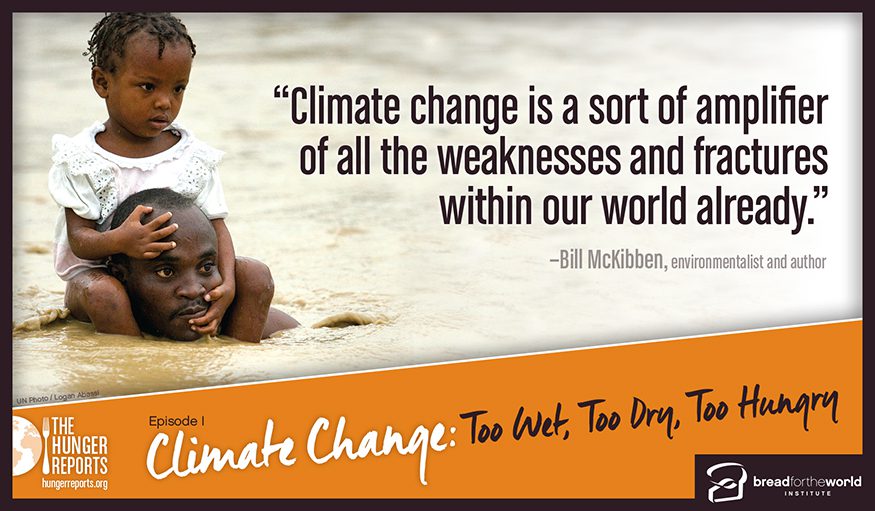Washington, D.C. – President Donald J. Trump’s decision to pull out of the Paris Agreement, the landmark, first-ever global agreement on climate change, will increase global hunger, warned Bread for the World Institute today.
“Climate change is already a significant cause of hunger around the world,” said Asma Lateef, director of Bread for the World Institute. “Because of droughts, floods, and unpredictable weather patterns, farmers in developing countries are no longer able to grow food in places they have been farming for generations. Many are having to leave their communities in search of food or income elsewhere.”
The U.S. is the world’s second-largest emitter of greenhouse gasses, which cause climate change. If the U.S. reneges on its commitments, global temperatures are likely to rise much faster than they would have otherwise. The impact of climate change includes crop failures and the loss of grazing lands, soil degradation, the spread of mosquito-borne disease, and the destruction of fisheries. Climate change is a factor in today’s famine and near famine conditions in four countries in Africa and the Middle East.
People already living in hunger and poverty have been the hardest hit by climate change. However, changing weather patterns are also affecting people in developed countries, including the U.S. If left unchecked, coastal cities like New York, New Orleans, and Miami could be submerged under water.
“The countries that contributed the most to climate change have a responsibility to help vulnerable people adapt to changed conditions,” Lateef said. “The U.S. must live up to its commitments—it’s the right thing to do. It is also in our national interest.”
Bread for the World Institute recently released a video, “Too Wet, Too Dry, Too Hungry,” that draws the clear connection between climate change and hunger. It features Bill McKibben, environmentalist and founder of 350.org. The video anchors a new series based on the award-winning 2017 Hunger Report: Fragile Environments, Resilient Communities.
“The world will not be able to end hunger without addressing climate change,” Lateef added. “Unfortunately, President Trump’s actions today have made it that much more difficult to reach this goal.”



